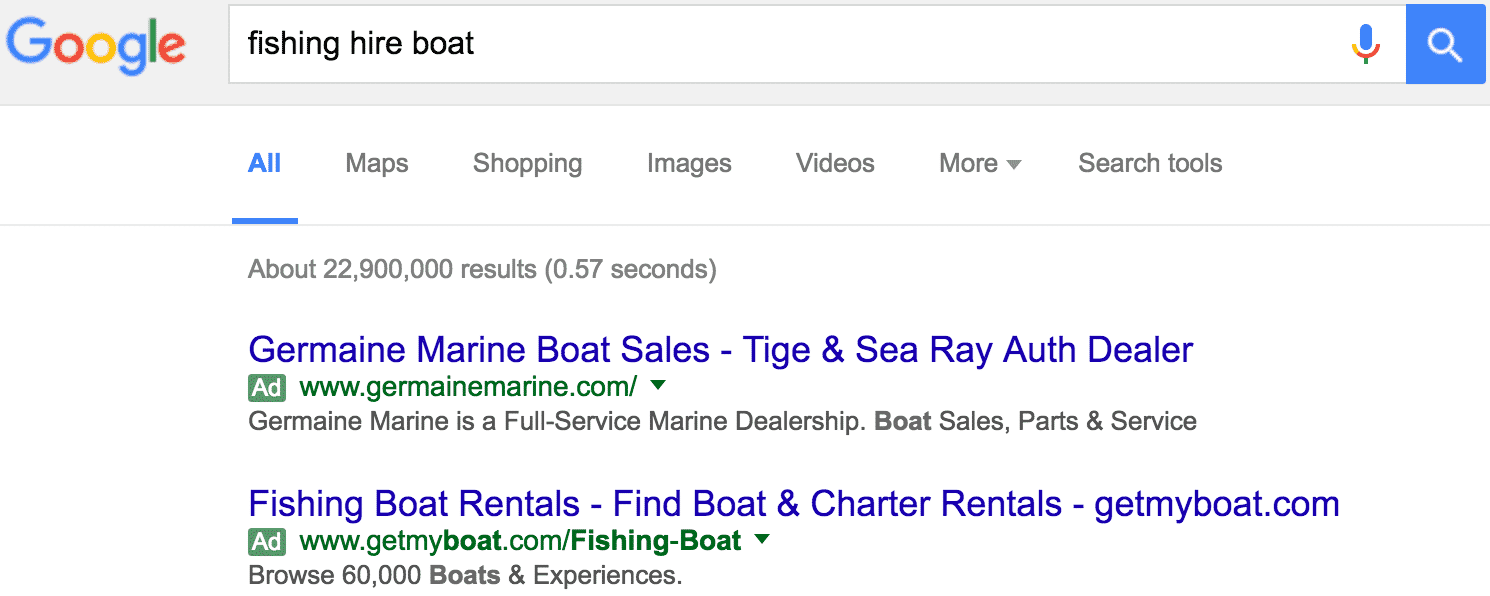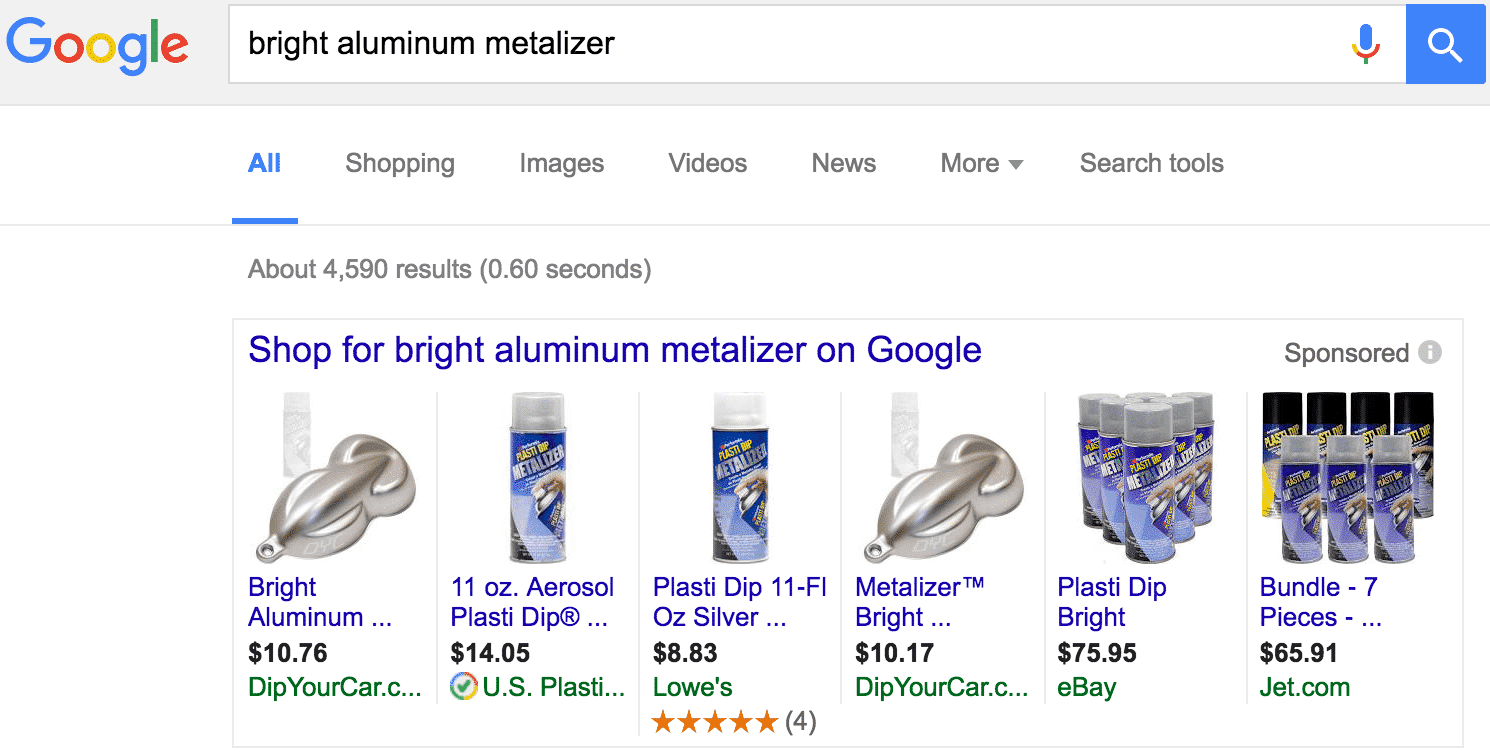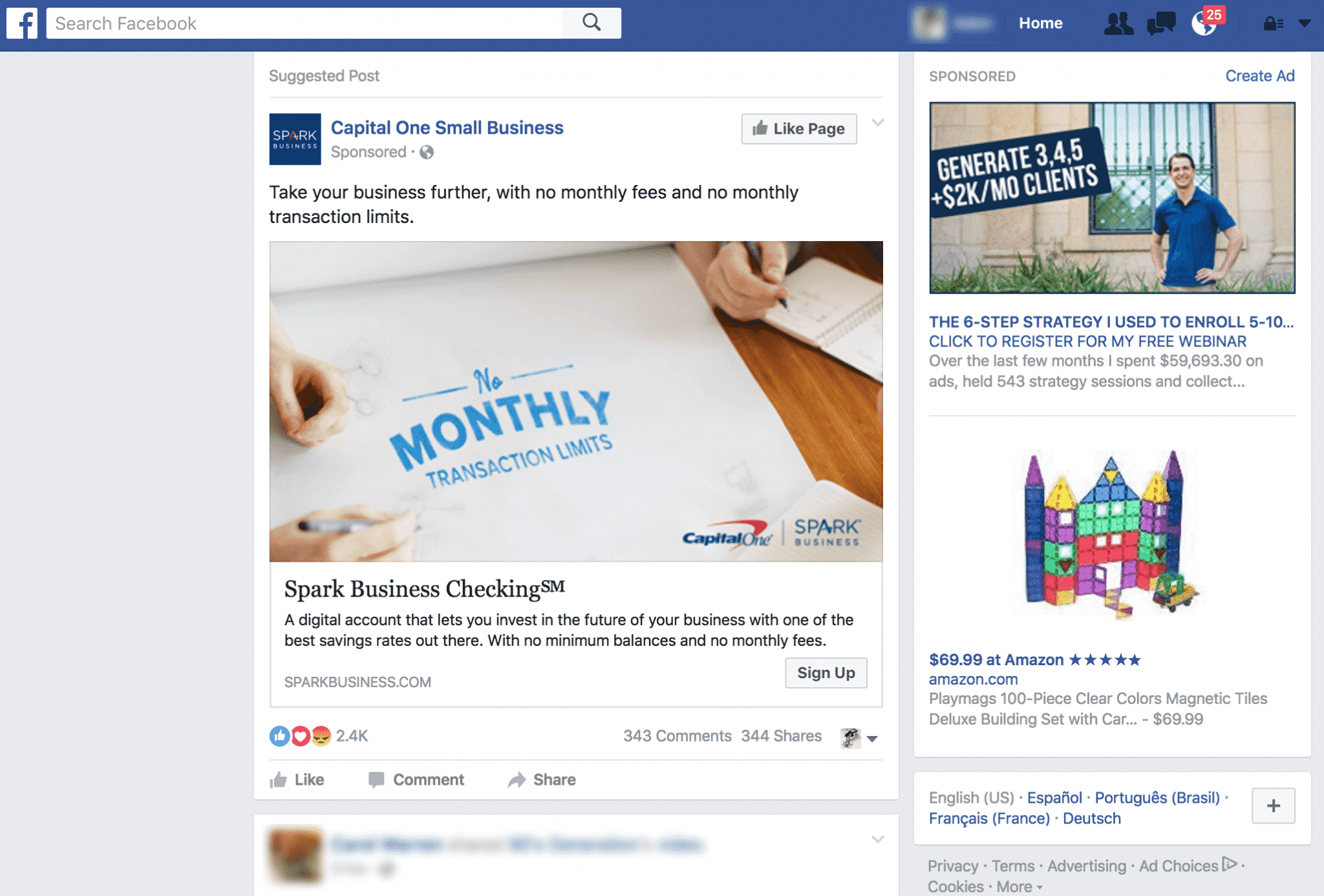Should Your Business Advertise on Facebook or AdWords? [Webinar]
by Andrea Warner • September 28, 2016
Where can you get the most return on your advertising spend—Facebook Ads or Google AdWords?
The answer is, it depends on your business.
In Disruptive Advertising’s recent Quick Class, Saunder Schroeder, VP of Paid Social Advertising at Disruptive Advertising, offered some great insights and tips on these platforms and the businesses that are the best fit for each platform:
In this follow-up article, let’s take a look at Facebook and AdWords compare and which business types are the best fit for each platform.
Differences Between The Two Ad Platforms
First of all, it’s important to understand the differences between the two ad platforms—how they work and what they look like.
With Google AdWords, you typically bid on specific keyword search terms (there are also display campaign options, but we won’t worry about those in this article).
Your ad displays to users who enter those keywords based on the quality of your ad as determined by Google and the amount you are willing to pay per click—your Cost Per Click (CPC).
Google AdWords ads display at the top of the search results page with minimal, if any, images, and text, along with a link.
In general, these ads show up as text ads:

For eCommerce companies, their results show up as shopping ads:

Facebook Ads work a lot like Google AdWords in that you bid on the amount you’re willing to spend per click (CPC). However, Facebook Ads are far more focused on creating a visual (or even video) experience.
Facebook Ads also flow with the user experience. Ads can be placed in line with the news feed or on the right side of the page:

These two platforms also differ by the stage of the sales funnel they work with best.
For example, if your customer is at the top of the funnel—or maybe not even in it yet—and you just need to get people interested in your product, Facebook Ads are typically your best bet. On the other hand, at the bottom of the funnel, when customers have higher intent, Google AdWords is the way to go.
As a result, Facebook is great for broad exposure when you need to make sure prospects know you exist. Google is best when you have a visitor who knows what he or she wants.
Not surprisingly, conversion rates naturally follow this pattern: Facebook ad conversion rates are typically in the 2-4% range and AdWords conversion rates are usually around 4-6%.
Best Choice By Business Type
At Disruptive Advertising, we tend to make platform recommendations based on business type and where a client’s target audience are at in client’s marketing funnel.
Here’s a quick run-down of those recommendations and some of the rationale behind them:
If you’re in eCommerce, advertise with Facebook
Facebook clearly wins for eCommerce advertising. That’s because eCommerce tends to attract impulse buyers and typically uses highly visual content to trigger those impulse buys.
Facebook ads allow for larger images and even videos, so Facebook is a great channel for eCommerce businesses.
In particular, eCommerce businesses that sell products that appeal to women perform particularly well on Facebook. This makes sense, since according to Statista, women account for 54% of Facebook users and men account for 46%.
Women also tend to be more active on Facebook than men, so Facebook is a great platform for reaching female buyers.
The one exception? Niche products.
Facebook is great for getting that initial exposure to your product and for impulse buys. Niche products typically need a loyal fan base to succeed.
So, if you sell a niche product, AdWords—which tends to be more effective with higher-intent audiences—is probably a better investment.
If you’re a services provider, it depends on the kind of service
The level of urgency and immediacy that customers have for the services you offer should determine the advertising platform you use.
For more maintenance type services, like washing windows or cleaning carpets, you’ll likely have great luck with Facebook. Someone scrolls by an ad for a company that washes windows, and thinks, “Oh yeah. I really do need to get my windows washed.” The ad plants the seed for the need for the service.
In comparison, if your drain is clogged up or your basement is flooded, you need someone to help you pronto. In these cases, you’re far more likely to do a Google search rather than check Facebook.
If your services tend to be ones that people need when they need it, AdWords definitely wins.
For Software-as-a-Service (SaaS) Companies, AdWords wins
Someone seeking larger technology or technology service investments like SaaS falls into a high-intent audience. These people are looking for specific items by exact name or type of item.
For example, if someone wants customer relationship management software, they may search on “customer relationship management,” “CRM,” or the exact name of a company or service like “Salesforce.” A Facebook ad for a CRM is unlikely to be effective, unless it’s used as part of a retargeting strategy based on an interest already expressed by a Facebook user.
Google AdWords tends to have traffic with much higher intent, so for most business services, go with AdWords if you are in the SaaS or general B2B space.
Use The Right Metrics
Although you’ll likely pay for your ads on both platforms on a cost-per-click (CPC) basis, that’s not necessarily the best way to measure the effectiveness of either the platform or your ad.
In fact, CPC varies widely by business type and platform.
For example, eCommerce businesses have a Facebook CPC around $0.70. On AdWords, most companies pay around $4.00 per click. Similarly, for SaaS businesses, Facebook clicks are around $5.00 a piece, while AdWords comes in at a whopping $100.00 CPC.
But, the thing is, while Facebook looks a lot cheaper than AdWords, Facebook also has a lower conversion rate.
So, if you’re running an AdWords campaign for a SaaS company, you may spend $100 per click, but if it takes 5 clicks on AdWords produce a sale and 200 clicks on Facebook to produce a sale, AdWords is the better investment.
Many businesses get excited about the lower CPC of Facebook ads, but remember, the success or failure of a pay-per-click campaign has less to do with your CPC and more to do with your cost-per-sale.
Last Words Of Advice
To every rule, there is an exception. While selecting your advertising platform by type of business and stage of the sales funnel serve as general rules of thumb, don’t take a “set it and forget it” approach to advertising on either platform.
You need to monitor and tweak your ads, making sure that you use the platform that’s producing the greatest returns.
If your return-on-investment is good, keep funneling more money into that platform until you start to reach a point of diminishing returns. Once you reach that point, consider reaching new audiences through another platform until you maximize returns there as well.
By the way, if you’d like me or Saunder to take a look at your business and give you some specific recommendations on which platform to use, let me know here or in the comments.
Facebook or AdWords…which do you prefer? Do you agree with this breakdown? Which platform have you seen better success with?




